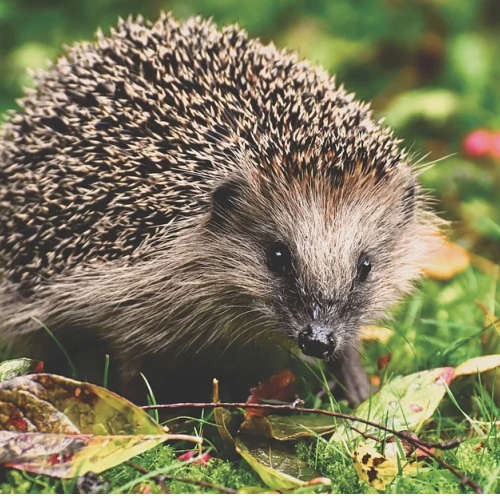
CPRE Kent supports the call for a consultation on proposals to reduce wildlife protection
CPRE Kent will be joining 30 other conservation groups in signing an open letter opposing a review of the Wildlife and Countryside Act 1981 that could undermine decades of work to restore and protect threatened species.
Every five years, species listed in Schedules 5 and 8 of the Act are reviewed through a process called the Quinquennial Review (QQR), coordinated by the UK Joint Nature Conservation Committee (JNCC).
Many species are listed because conservation experts have recommended their inclusion due to either persecution, population decline or other threats.
This year, in a change to the normal process, the Review Group (JNCC, Natural England, Natural Resources Wales, NatureScot and representatives of the non-governmental sector) has changed the eligibility criteria of species currently (and in future times) listed and afforded protection by the Act.
This change means that an animal or plant species will only be protected when it is in imminent danger of extinction as defined by the highest categories in the IUCN Red Listing process, or those identified as European Protected Species. This decision has been made without due consultation and, to date, has not considered concerns raised by conservation groups.
Large numbers of species will now no longer be protected against killing and sale by law, including previously persecuted species such as mountain hares and adders.
Now, 30 conservation non-governmental organisations (NGOs), including Froglife, RSPCA, RSPB, People’s Trust for Endangered Species, The Wildlife Trusts, Zoological Society of London and the Amphibian and Reptile Groups of UK, have written an open letter to the Review Group in opposition to this proposed change, as many endangered species, from red squirrels to water voles, could be at serious risk if the proposed changes are granted.
Removal of protection means it would no longer be illegal to kill these species. Building developments could take place with no consideration of the impacts on formerly protected species such as slow-worms and water voles (if a case cannot be made to keep the latter listed). It also means that it will once again be legal to persecute adders, pine martens and mountain hares – despite all the costly efforts to conserve these vulnerable species.
It would become legal to trade wild-caught British species including amphibians and butterflies, directly impacting populations and posing a huge biosecurity risk. This is of particular concern for widespread amphibians already at serious risk from Chytrid and Severe Perkinsea Infection, which have wiped out populations worldwide and have both been found in captive collections in the UK.
While very valuable, the GB IUCN Red Listing process is not suitable for this purpose. It is complex and requires high levels of evidence of population trends. This in turn requires high-level species surveys and analysis of data to determine population trends at a national scale.
There has been no provision made as to how this will be resourced and an assumption that NGOs will take on the burden of the work.
The changes that have been decided by the QQR Review Group remove the opportunity to prevent species decline. Under the changes outlined we will only be reacting to catastrophic species declines.
In their letter to the Review Group, the 30 wildlife NGOs are calling for a public consultation on the decision to change the eligibility criteria.
Dr Angela Julian, of Amphibian and Reptile Groups of the UK, said:
“We are shocked to discover these proposed changes, which will effectively remove any form of protection from many of our well-loved widespread species including slow-worms, grass snakes and viviparous lizards. Our native wildlife deserves a fair hearing.”
Froglife’s Jenny Tse-Leon added:
“Froglife is really worried about how these changes will particularly affect amphibians and reptiles, many of which have faced serious declines in recent years but do not qualify as threatened enough under IUCN definitions.
“Our research has shown that common toad numbers have plummeted by 68 per cent in the last 30 years, but these plans mean they no longer qualify for protection.”
And Nida Al-Fulaij, from the People’s Trust for Endangered Species, said:
“The State of Nature report 2019 confirmed that 41 per cent of 700 species assessed have decreased in abundance since the 1970s.
“We know that many of our most well-loved species, such as hedgehogs, are suffering huge declines. This is not the time to be reducing protection for them.”
- You can read the letter calling for a public consultation on the proposals here
Article first published by CRE Kent





